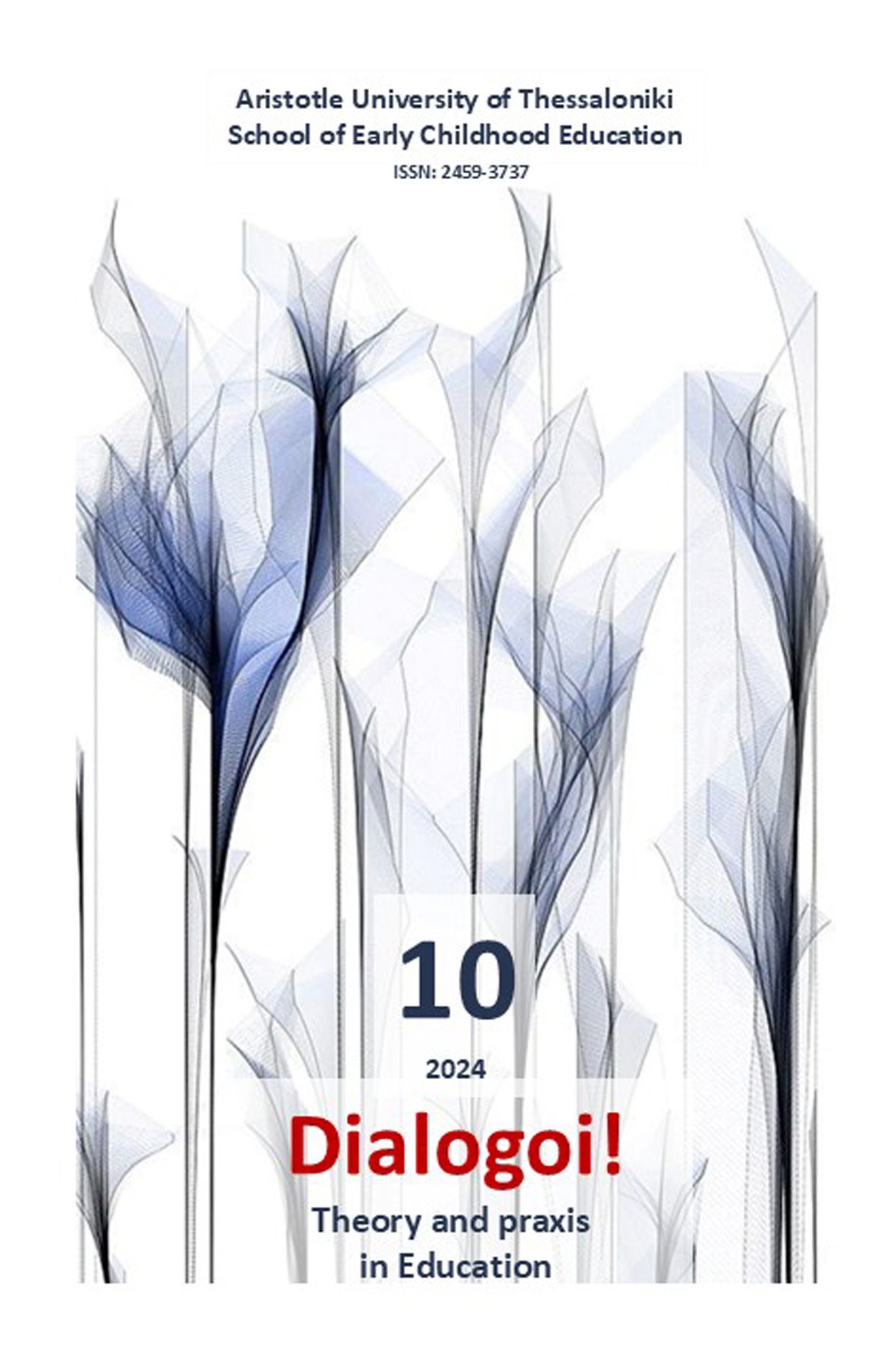Cultivating citizenship through the art course in Primary and Secondary education: Visual arts educators’ experiences, estimations and views

Abstract
Art education shapes students in their entirety, contributing decisively to their motor, emotional, cognitive and intellectual development. However, in an ever-changing world, there is a need to cultivate them as active, informed and responsible citizens, able to operate at national, European and international level. Therefore, art classes should follow practices that will allow students to experience democracy, involving them in socio-political reality. Decisive in this process is the role of the art educator, who acts as a mediator in the relationship of students with their cultural environment. The purpose of this research was to explore the self-perception of art courses’ educators regarding their role, and their perceptions, both for the art course and for the cultivation of citizenship through it. Especially, the necessary amount of knowledge and skills they need to own in order to cultivate citizenship, the practices they adopt in this direction and the obstacles they encounter. As the research questions are poorly explored internationally and due to their nature, the qualitative research method was chosen. In particular, art educators' views were recorded through semi-structured interviews. The recording and analysis of the views of ten art educators of Primary and Secondary Education revealed that there is a relative awareness of them. However, although art educators seek to cultivate skills directly related to citizenship through visual arts lessons, it seems that their choice is the result of their perception of the role of art education and not a conscious effort to cultivate students as citizens. Also, for the political socialization of students, it has been proven that it is not the knowledge and skills of the art educators that play a decisive role, but their attitudes. Therefore, it is recommended that citizenship trainings focus not only on providing knowledge and familiarization with innovative teaching methods and practices, but mainly on cultivating attitudes and instilling values.
Article Details
- How to Cite
-
Plastira, R. (2024). Cultivating citizenship through the art course in Primary and Secondary education: Visual arts educators’ experiences, estimations and views . Dialogoi! Theory and Praxis in Education, 10, 174–195. https://doi.org/10.12681/dial.38676
- Issue
- Vol. 10 (2024)
- Section
- New researchers

This work is licensed under a Creative Commons Attribution-NonCommercial-ShareAlike 4.0 International License.
Authors who publish with this journal agree to the following terms:
- Authors retain copyright and grant the journal right of first publication with the work simultaneously licensed under a Creative Commons Attribution Non-Commercial License that allows others to share the work with an acknowledgement of the work's authorship and initial publication in this journal.
- Authors are able to enter into separate, additional contractual arrangements for the non-exclusive distribution of the journal's published version of the work (e.g. post it to an institutional repository or publish it in a book), with an acknowledgement of its initial publication in this journal.
- Authors are permitted and encouraged to post their work online (preferably in institutional repositories or on their website) prior to and during the submission process, as it can lead to productive exchanges, as well as earlier and greater citation of published work (See The Effect of Open Access).


